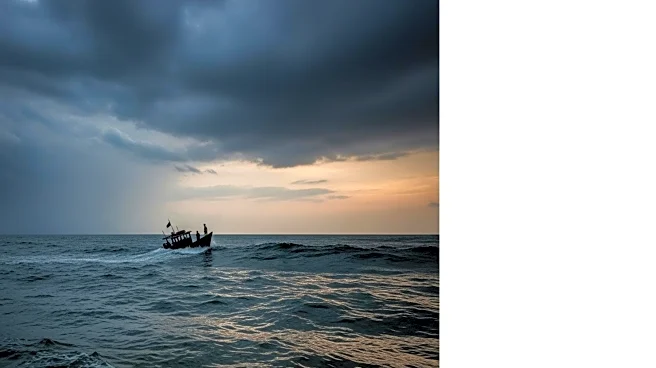What is the story about?
What's Happening?
Indian authorities have reportedly deported 40 Rohingya refugees to Myanmar, a country they fled due to persecution. The refugees were allegedly taken from Delhi to the Andaman Sea, where they were forced onto a naval vessel and subsequently into the sea with life jackets. The UN's special rapporteur on human rights in Myanmar, Thomas Andrews, has presented evidence of these allegations to India's head of mission in Geneva. The refugees, now in Myanmar, face an uncertain future amidst the ongoing civil war. India does not recognize Rohingya as refugees, considering them illegal immigrants under the Foreigners Act. The deportation has sparked fear among the Rohingya community in India, with families worried about their relatives' safety in Myanmar.
Why It's Important?
This development highlights the precarious situation of Rohingya refugees in India and raises significant human rights concerns. The forced deportation to Myanmar, a country in conflict, could violate international law, particularly if the refugees face risks of torture or other abuses. The incident underscores the challenges faced by stateless populations and the need for international intervention to ensure their protection. The situation may strain diplomatic relations between India and international human rights organizations, potentially impacting India's global standing on human rights issues.
What's Next?
India's Supreme Court is set to hear arguments on whether Rohingya can be treated as refugees or illegal immigrants, which could influence future deportations. The court's decision may affect India's refugee policies and its adherence to international human rights standards. Advocacy groups and international bodies may increase pressure on India to halt such deportations and provide protection to Rohingya refugees.
















